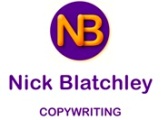 George Orwell has left a significant mark on how we speak and think. He’s given us phrases like Big Brother and Room 101, a yardstick to measure political manipulation and, when I was younger, an irrational fear of reaching the year 1984. He’s also given us Newspeak (and any number of similar coinings ending in -speak) in which he identified the debasement of language as a strategy to stop people thinking for themselves.
George Orwell has left a significant mark on how we speak and think. He’s given us phrases like Big Brother and Room 101, a yardstick to measure political manipulation and, when I was younger, an irrational fear of reaching the year 1984. He’s also given us Newspeak (and any number of similar coinings ending in -speak) in which he identified the debasement of language as a strategy to stop people thinking for themselves.
Four years before Nineteen Eighty-Four* was published, Orwell wrote an article called Politics and the English Language, in which he examines a similar process that’s still disturbingly widespread. Orwell focused mainly on political language (taking examples equally all the way from right to left) but the abominations he highlighted are still alive and well in areas ranging from business to sport.
The article shows a number of ways this can work, but what they all have in common is reaching for the easiest cliché rather than taking the trouble to consider precisely what you want to express. Or, as Orwell puts it, “gumming together long strips of words which have already been set in order by someone else, and making the results presentable by sheer humbug.”
Of course, there are times when it’s inevitable that the words or phrases we use will be obscure. You can’t explain a scientific theory or analyse the country’s economy in words of one syllable. Even these, though, should be easily definable and precisely used, so that anyone who chooses can find out their meaning — a fundamental principle of science, in fact.
Most jargon and sloppy phrases, though, don’t really mean anything. Remember “at this moment in time”? As distinct from a moment in space, presumably. And can anyone specifically define what “blue sky thinking” is and how it differs from the humble “using your imagination”?
Sometimes, the approach is to so pack the sentence with impressive but meaningless words that we give up trying to unpick it. This is quite common in the worst kind of business language. I’m sure we’ve all come across nonsense sentences like “The aforementioned provision is deemed to represent the most advantageous opportunity for optimising the desirable outcome.” That, by the way, means “This will work best.”
Another common failing is to use metaphors or cultural references without bothering to consider what they actually mean. I’ve lost count of the times I’ve heard some successful business leader being described admiringly as having “the Midas touch”. The whole point about the story of King Midas is that what seemed like a blessing turned into a curse.
So does any of this really matter? I’d agree with Orwell that it’s of the highest importance. Just as Newspeak, which is also widespread, deliberately conceals meaning, relying on clichés allows them to “construct your sentences for you — even think your thoughts for you, to a certain extent — and at need they will perform the important service of partially concealing your meaning even from yourself.”
Whether we want to be successful in our businesses, hold clear political views, or even understand that football is more than “a game of two halves”, taking responsibility for our own thinking is vital. And clichés, jargon and Newspeak are the mortal enemies of individual thinking.
* Contrary to widespread belief, this is the correct title, not 1984.
Image reproduced under Creative Commons licence from Simon Harriyott
